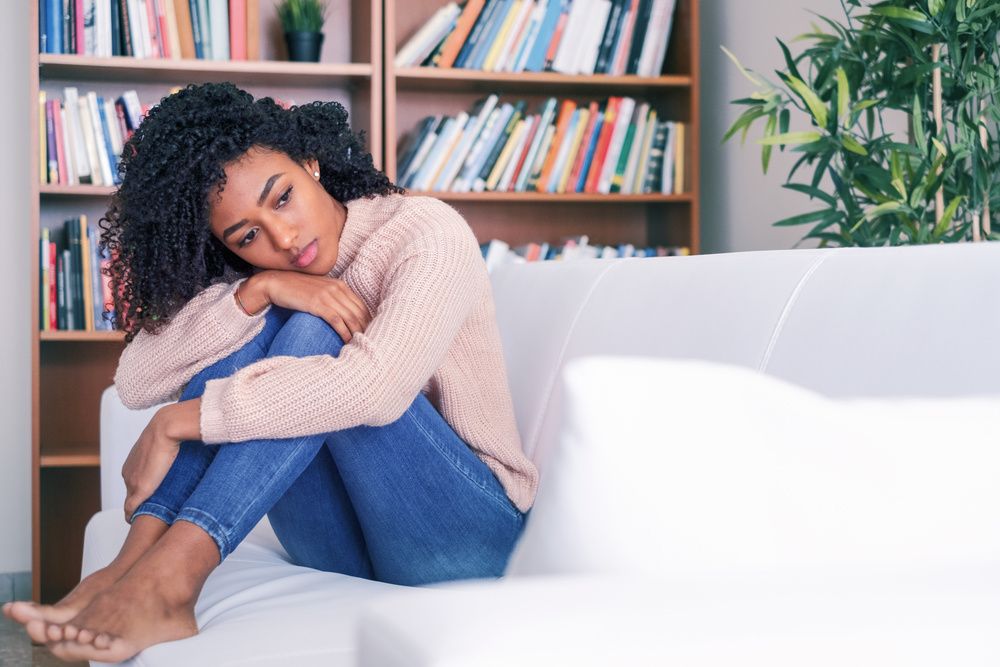Wellness
Approximately 7.5 million African-Americans have a diagnosed mental illness, and up to 7.5 million more are potentially navigating life undiagnosed. African-American women are over-represented in these statistics, as a result of racism, sexism, microaggressions in the workplace, low-income jobs, predisposed health conditions, and multiple role responsibilities, all of which impact their overall mental health.
In recent years, the tide has shifted when discussing therapy and mental health. African-Americans are now more likely to seek out therapists, but not without difficulty in searching for Black/brown mental health clinicians. Dr. Joy Harden Bradford, Atlanta-based psychologist founded Therapy For Black Girls, a directory of resources and mental health professionals for Black women. What started as a Google doc is now a database of over 800 therapists, Therapy For Black Girls (the website, and podcast of the same name) has become the destination for Black women looking to find a therapist.
Recently, I spoke with Dr. Joy and asked ways that we can put our mental health first today and beyond. Here are the gems she dropped.
Shutterstock
Carving out some time for solitude.
"Make sure you're setting aside time daily for journaling, meditation, or prayer. We need to make sure that we're allowing ourselves that time to tune into our thoughts, and how we're feeling in order to access how we're showing up for ourselves, and others."
Get your body moving.
"Physical activity is paramount. You need to keep your body [active] with whatever exercise makes you feel good (cardio, dance class, yoga, etc.) so that you can release those feel-good hormones called endorphins."
Paying attention to sleep.
"Far too often, we don't take into account how rest is related to our mental health. Studies have shown that 6-8 hours of sleep every night improves brain functionality, your muscles have the opportunity to recover, and your memory is processed and stored for learning. Getting enough sleep also allows you to feel energized and helps enhance your concentration."
Stay off your phone at least an hour before bedtime.
"Allowing your brain time to shut down before you go to bed. When you're scrolling before bedtime, your mind stays active, and long after you've put your phone down to go to sleep"
When police brutality videos surface online, don’t watch them.
"I understand that we're posting in an attempt to bring awareness, I also want you to reconsider what's happening. Because many of us are desensitized to those videos, we don't realize how they can impact us mentally. I think people need to know that you can still show solidarity and advocate while not sharing those videos that can trigger you. Also, consider turning off the autoplay button on your social media channels so that they don't just appear on your feed."
For those in therapy, remember that your work is for you.
"As a community, we often want to help one another, especially as it relates to healing (and even exploring therapy) but you need to remember that your work, is for you. And while it can be great for you to share what you're learning with your loved ones, and how helpful it's been for you, we have to remember that we are ultimately only responsible for ourselves."
Want to talk more about beauty, wellness & self-care? Join the xoTribe members community to connect with other like-minded women on their glow-up journeys.
Featured image by Shutterstock
From Your Site Articles
- I Took A Two-Month Leave From Work For My Mental Health ›
- Mental Illness & Mental Health While Social Distancing - xoNecole ... ›
- How Mental Health Impacts Sex, According To Sexual Wellness ... ›
- Accessible Mental Health & Well Being Resources - xoNecole ›
Related Articles Around the Web
ALSO ON XONECOLE
